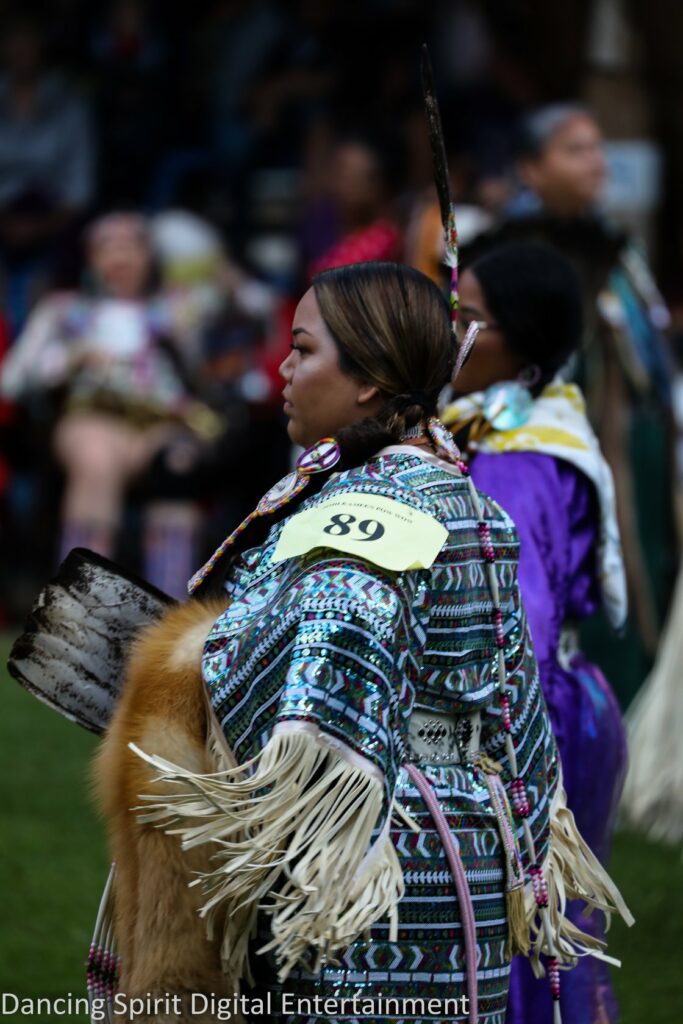
Weytk, Ashley Michel ren skwekwst. Te Tk’emlups re st̕7é7kwen. Secwépemc-ken ri7. Vicki Manuel re skwest.s ren kí7ce. Paul Michel re skwest.s ren qé7tse. Ren tek’séle re kyé7e, Charlotte Manuel ell Flora Sampson re skwest.s. Aveah Michel re skwest.s ren st̕emkékelt.
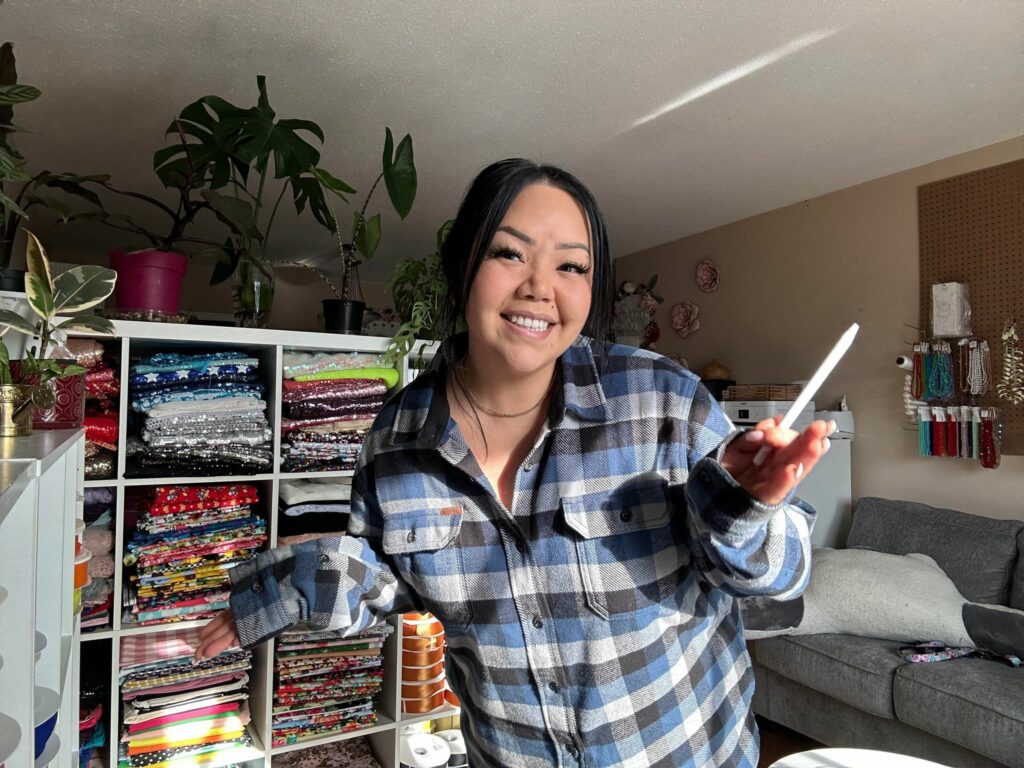
Hello, my name is Ashley Michel and I am Secwépemc from Tk’emlups Indian Band. Being Indigenous, it is normal to always introduce your family. This is to introduce who you are, where your from, and for others to make connections (if you have any k’wséltkten [relations] to those you are conversating with). My mother is Vicki Manuel from Tk’emlups Indian Band. My Father is Paul Michel from Neskonlith Indian Band. My two grandmothers are Charlotte Manuel and late Flora Sampson. I also have a 9-year old daughter named Aveah!
I graduated from St. Ann’s Academy in Kamloops in 2009. I immediately went to university the following September not knowing what I wanted to do or even who I truly was. I quickly decided that I wanted to explore these aspects about myself more so I decided to take time off to gain life experience. During this time, I had my daughter, Aveah Michel, in 2013. She changed my life. I realized how important it was to raise her in our Secwépemc language and culture. I wanted her to grow up knowing and not be left with a feeling of “lost-identity” like myself and many other reconnecting Indigenous people feel.
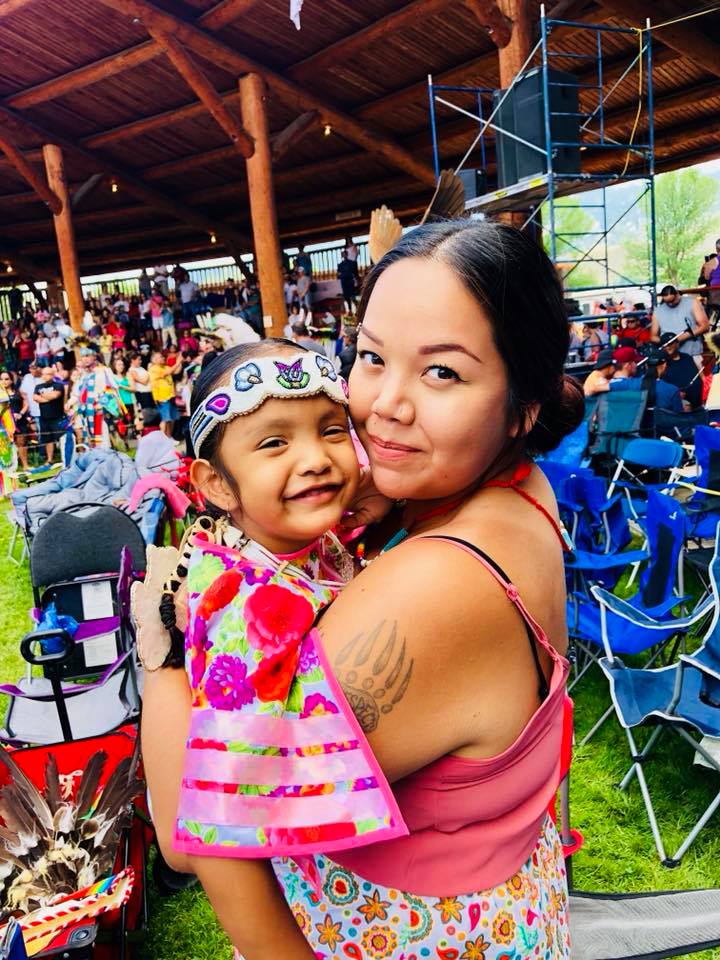
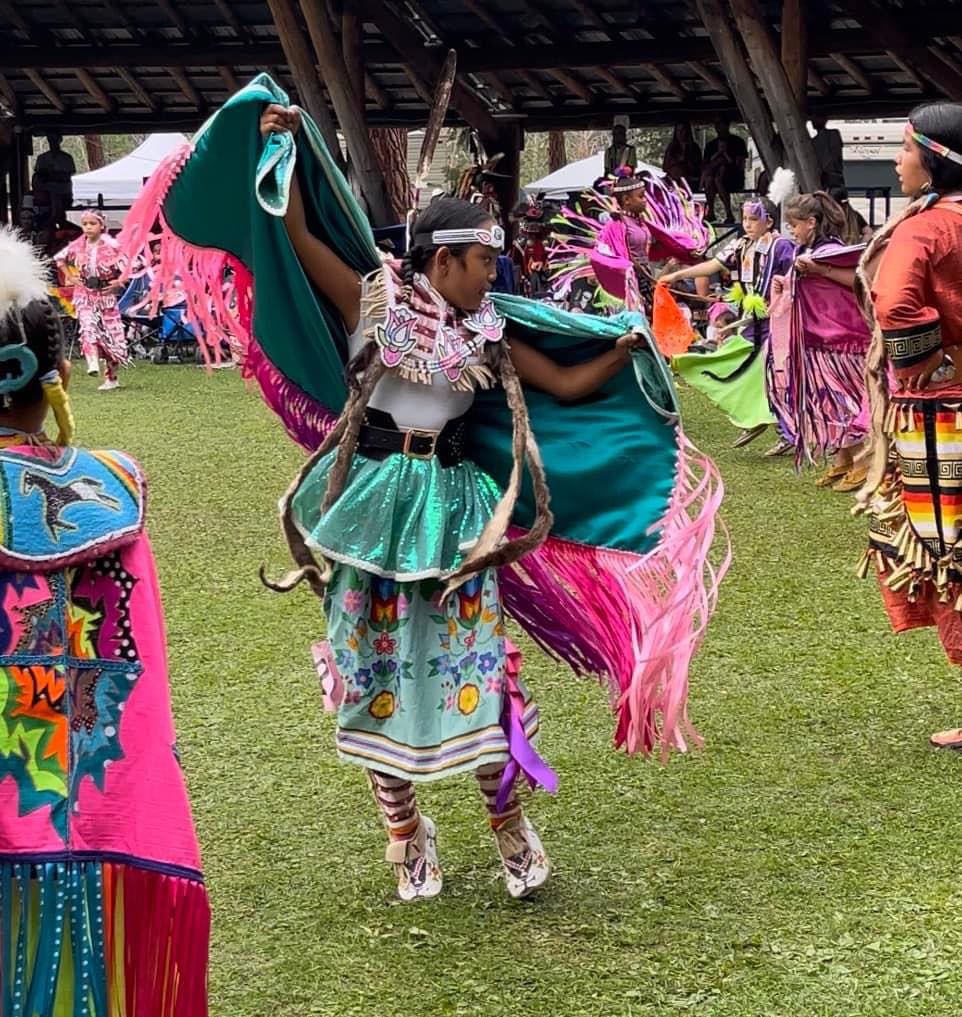
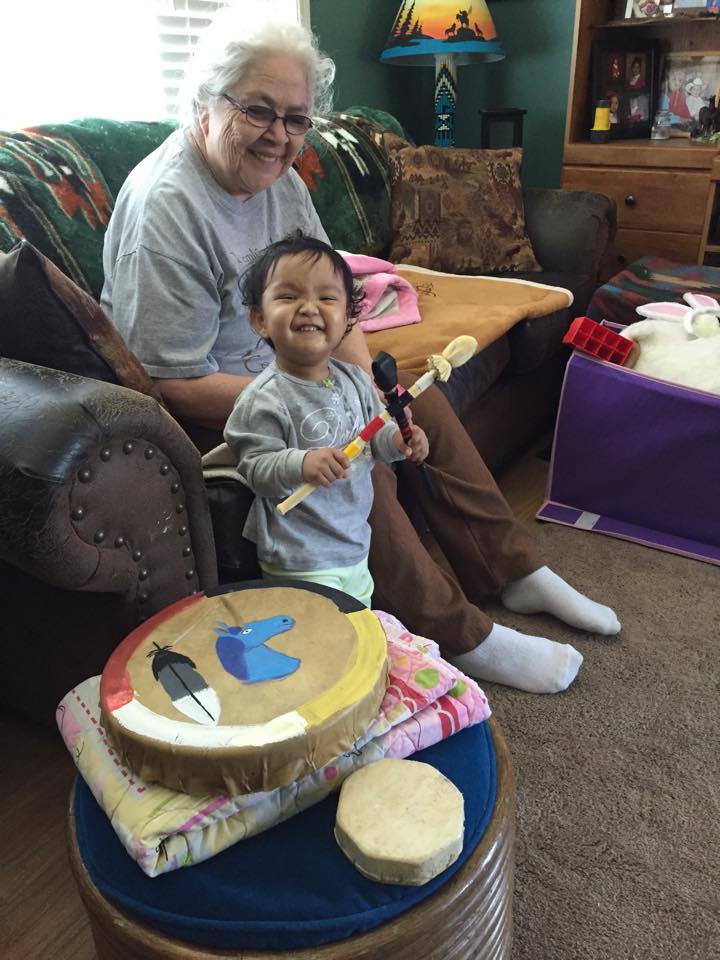
Centre: Aveah dancing Fancy Shawl at Similkameen Pow Wow (2021).
Right: Aveah taking some drumming lesson from Great-Grandma Charlotte.
To me, being apart of culture meant to attend pow wow’s, gatherings, and ceremonies. I wanted my daughter to have traditional attire to wear at these events. But, as a young mother, I couldn’t afford to have somebody make it for me – so I learnt my self. I watched YouTube videos but a lot of what I taught myself was through trial and error as there was limited amounts of tutorials available about how to create Indigenous ribbon skirts and regalia back in 2013/2014. Very quickly I became a successful self-taught artist and entrepreneur. I own my own business where I can educate others about Indigenous issues, history, and resiliency through art, and share my acquired knowledge of ribbon skirts and regalia.
In 2018-2020, I was accepted into the FPCC Mentor-Apprentice program that allowed me to learn Secwepemctsín under my kye7e Flora Sampson. Over the two years, we accomplished over 600+ hours of Secwepemctsín immersion. Our lessons included sitting together and having tea to being out on the land (tmicw). Unfortunately, my kye7e passed before we could continue with our 3rd and final year together in Secwepemctsín immersion (an additional 300+ hours). It made me realize how important and crucial it is to learn from our elders and knowledge keepers while we still can.
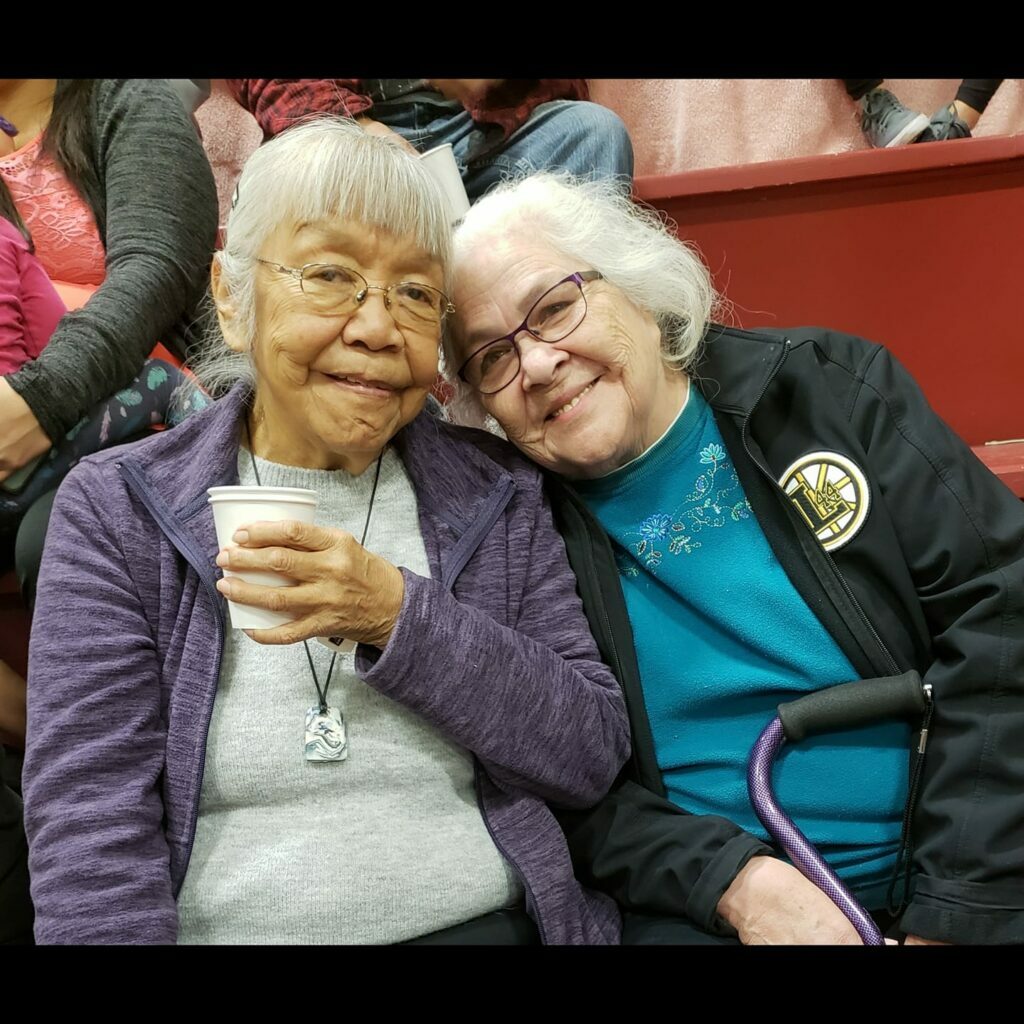
Grandmothers Flora (Left) & Charlotte (Right). Both of whom are Residential School survivors and attended KIRS.
Residential Schools stripped us of our identity and because of that, I know the statistics many Indigenous communities and people face. I wish I grew up learning our language. I wish I grew up singing our songs and dancing our dances. Secwepemc knowledge is traditionally transferred orally. So what happens when we no longer have our elders and knowledge keepers? It is because of these reasons that my passion for wanting to share and revitalize our Indigenous culture and language naturally pushed me on the path to becoming a teacher which is reflected in my teaching,
Kukwstsétsemc (thank you),
Ashley Michel
